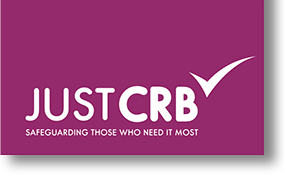Criminal Records Bureau (CRB) checks are now called Disclosure and Barring Service (DBS) checks.
You may need to check someone’s criminal record if they apply:
- for certain jobs or voluntary work, for example working with children or in healthcare
- to foster or adopt a child
There are different rules for getting a criminal record check in Scotland and Northern Ireland.
You must do a separate check to make sure a job applicant is allowed to work in the UK.
Who can ask for a DBS check
Only employers and licensing bodies can request a DBS check. Job applicants can’t do a criminal records check on themselves. Instead, they can request a basic disclosure from Disclosure Scotland (you don’t have to be from Scotland to do this).
Use the DBS tool to find out if you can check someone’s criminal record. You can contact DBS if you’re not sure.
How to get a DBS check
- The employer gets an application form from DBS or an umbrella body (a registered body that gives access to DBS checks).
- The employer gives the applicant the form to fill in and return to them along with documents proving their identity.
- The employer sends the completed application form to DBS or their umbrella body.
- DBS sends a certificate to the applicant. The employer has to ask the applicant to see the certificate.
If the applicant has subscribed to the DBS update service, the employer can check their certificate online.
How long a DBS check is valid
A DBS check has no official expiry date. Any information included will be accurate at the time the check was carried out. It is up to an employer to decide if and when a new check is needed.
Applicants and employers can use the DBS update service to keep a certificate up to date or carry out checks on a potential employee’s certificate.
Types of criminal records check
There are 3 types of check. The employer or organisation running the check should provide the applicant with more information about the level of check required.
DBS check applicants must be 16 or over.
The time it takes to process a DBS check depends on:
- the level of check
- if the details given for the check are correct
- what police forces need to be involved in the check
Generally, it can take around 8 weeks to get a DBS check.
Standard
This checks for spent and unspent convictions, cautions, reprimands and final warnings.
Enhanced
This includes the same as the standard check plus any additional information held by local police that’s reasonably considered relevant to the role being applied for.
Enhanced with list checks
This is like the enhanced check, but includes a check of the DBS barred lists.
An employer can only ask for a barred list check for specific roles. It’s a criminal offence to ask for a check for any other roles.
Volunteers
Checks for eligible volunteers are free of charge. This includes anyone who spends time helping people and is:
- not being paid (apart from for travel and other approved out of pocket expenses)
- not only looking after a close relative
An employer can only apply for a check if the job or role is eligible for one. They must tell the applicant why they’re being checked and where they can get independent advice.


